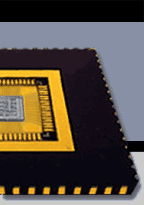|
|
|
Abstract Embedded Systems: Overview and Approaches to Research and Education Prof. Marwedel Embedded systems are information processing systems that are embedded into an enclosing product. Examples of embedded systems include information processing systems in transportation, telecommunication, manufacturing and medical applications. Typically, they are bought because of their overall functionality and not just because of information processing. According to many predictions, embedded systems will be the main market of information technology in the future. This talk on embedded systems will consist of three parts: In the first part, general characteristics of embedded systems as well as open issues that need to be addressed will be explained. A research project addressing the limited availability of electrical energy in embedded systems will be described in the second part. This approach addresses the growing importance of the memory interface in embedded systems. It will be shown, how a combination of scratch pad architectures and appropriate compiler technologies can reduce the energy consumption in the memory by a large factor (exceeding 20 in some of our examples). Embedded systems are linking many different areas, reaching from mechanical and electrical to software-oriented subjects. Teaching based on realistic projects is therefore very important. Due to the complexity of realistic projects, such teaching is difficult. Furthermore, a good cooperation between industry and academia is necessary for embedded system education. An approach to embedded system education respecting these constraints will be presented in the third part of the talk. It will be demonstrated, how modern multimedia technology can be used to make embedded system engineering accessible to students. |
||
 |
||
 |
|
 |
|

